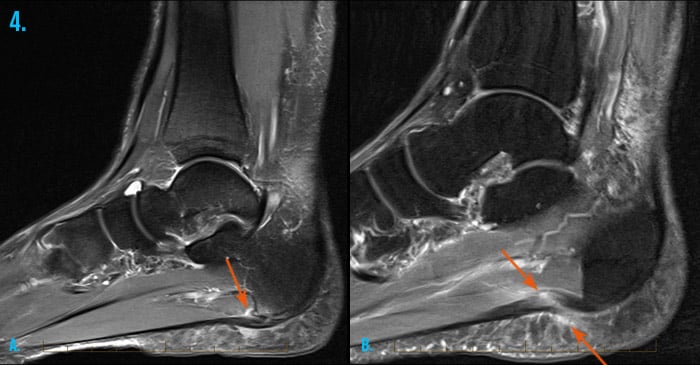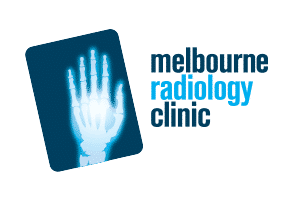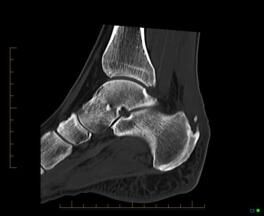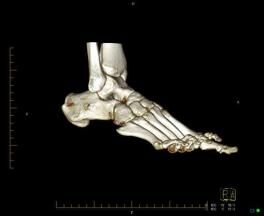Achilles Tendon Tear & Paratenonitis MRI
The Achilles tendon is the largest tendon in the body, attaching your heel bone to your calf muscles. Despite its status as the largest and strongest tendon in the body, the Achilles tendon, like all other tendons, is susceptible to injury – with tears one of the most common injuries that occurs.
What happens when your Achilles tendon tears?
There are two different types of tears – a partial tear and a complete tear. A partial tear occurs when incomplete tearing occurs such that only some of the fibre within the tendon are involved. A complete tear of the Achilles tendon results in total tendon failure due to complete rupture that results in disconnection between the calf muscles and heel bone and thus reduced mobility. Partial tears usually present with painful restriction of movement whereas a complete tear will result in dramatic loss of function and a popping sensation indicative of the tendon rupturing.
An ultrasound or an MRI scan of the Achilles tendon tear will quickly and reliably distinguish between the presence of a partial or full-thickness tear.
What are the common causes of Achilles tendon tears?
Achilles tendon tear usually occurs due to excessive or repetitive stress on the tendon. As your Achilles tendon is utilised in walking, running and jumping, as well as supporting your body weight, it is susceptible to tear.
What are the common causes of Achilles paratenonitis?
Achilles paratenonitis tear is the term used to describe inflammation of the surrounding covering of the tendon, known as the paratenon. Clinically this may present with similar symptoms as a partial thickness tear and indeed the two conditions may co-exist.
However, an Achilles paratenonitis MRI scan can reliably asses the Achilles tendon and therefore the likely source of your pain/
Specialists in the diagnosis and treatment of Achilles tendon injuries
The radiology doctors at Melbourne Radiology Clinic are experienced in the rapid diagnosis of your Achilles injury and advise on suitable treatments to assist in the healing process. Other than Achilles tendon tear & Achilles paratenonitis MRI scans, we also offer other examinations including MRI scan for shoulder injuries, MRI scan for knee injury for the assessment of any joint tears. If you need to book an appointment, simply call our team on (03) 9667 1667 where you will be scheduled as soon as possible.
Case examples:
1. Achilles tendon injury
MRI of the ankle demonstrates a full thickness tear of the Achilles tendon (arrow).
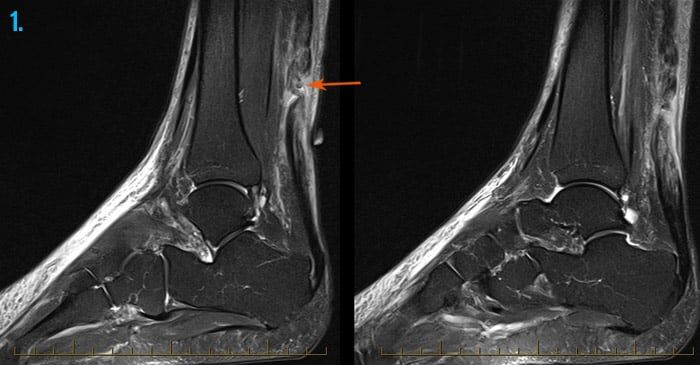
2. Stress fracture
MRI of the ankle shows a stress fracture (arrow) of the calcaneus (heelbone).
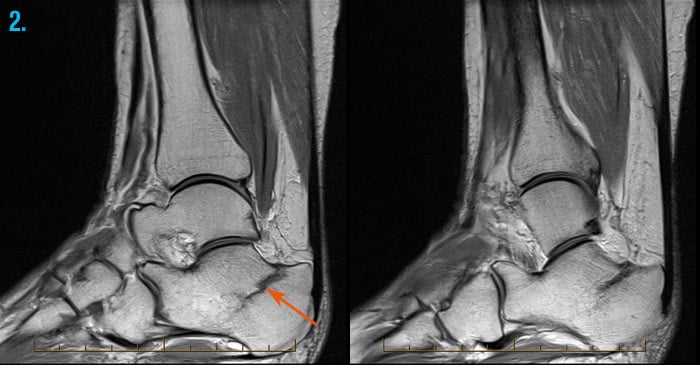
3. Use of CT to identify fractures and soft tissue calcifications
CT can be used to assess fractures of the ankle and soft tissue calcifications. 3D volume rendered images can also be obtained.
4. Plantar fasciitis
CT can be used to assess fractures of the ankle and soft tissue calcifications. 3D volume rendered images can also be obtained.
